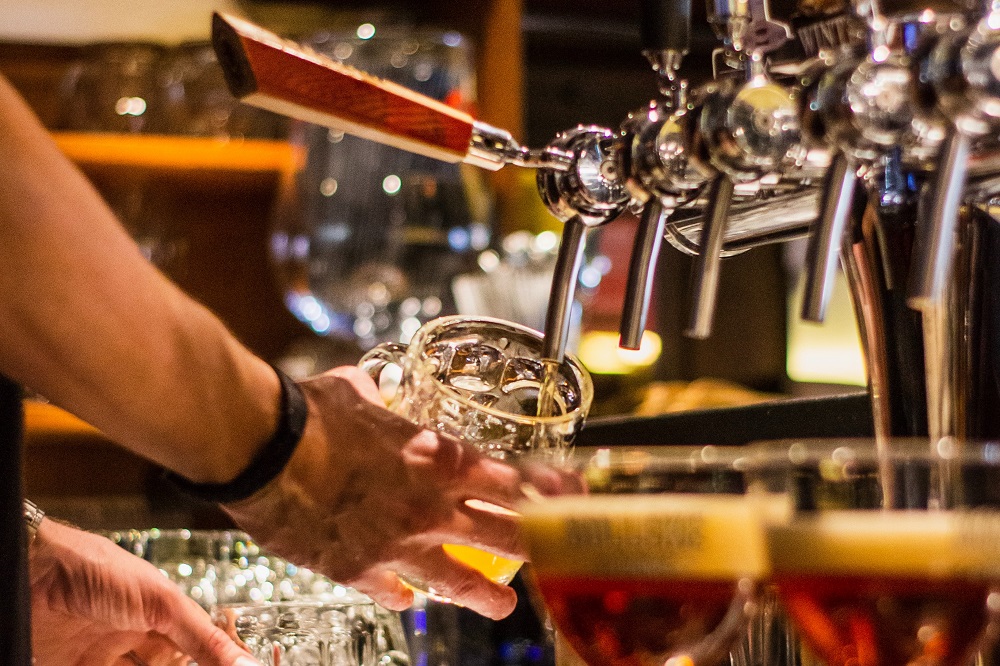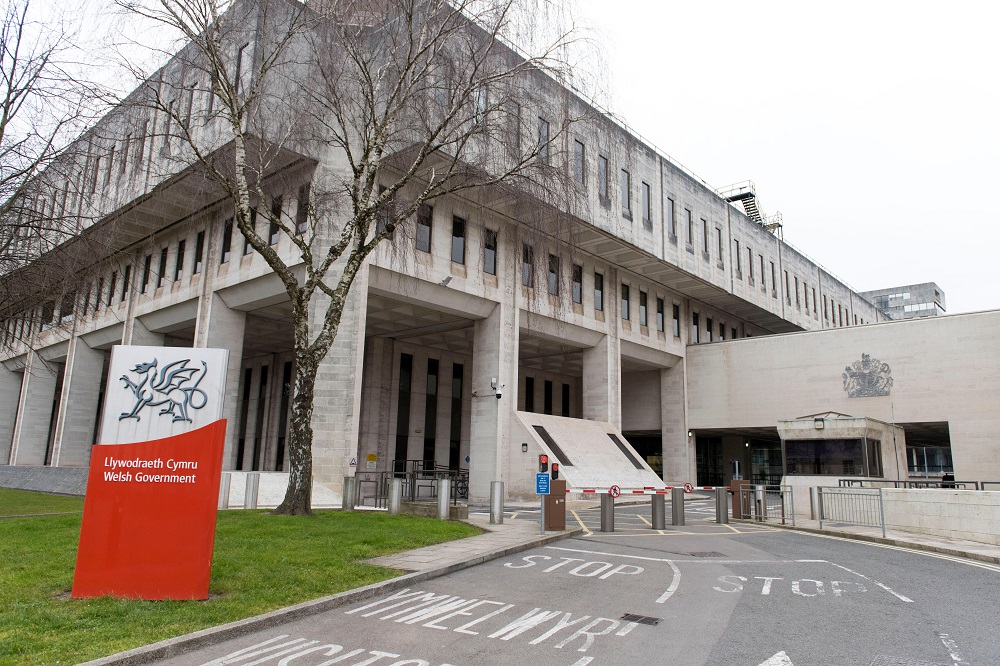News in brief: Pubs could be closed and curfews introduced to slow coronavirus spike

Health Minister Vaughan Gething has confirmed the government is looking at increasing the range of measures used to tackle the recent increase in Covid-19 cases in Wales, which could include the introduction of curfews, restricting alcohol sales and changing pub operations, including shorter opening hours, or only selling alcohol with food.
Speaking at Monday’s government press briefing Mr Gething highlighted the similarities between the spikes in Caerphilly, Merthyr Tydfil, Rhondda Cynon Taf and Newport, and said “socialising indoors and at home without social distancing, and imported cases from holiday travel” were the main causes of the rise.
“It’s important that we stick with the rules that we’ve got about limiting our contact to our extended households,” he warned.
“Otherwise we may not just see a large number of cases but all the consequences in closing down a range of businesses with consequences for people’s livelihoods.”
Earlier he told BBC Radio Wales. “I have got a range of options to consider from closing all pubs, which is most significant and simplest.
“There is also the potential for reducing the hours of the pubs, or doing what Ireland have done where you can only go into a pub if you are ordering a meal as well, which effectively means you couldn’t go on a pub crawl to take in six or seven different venues.
“We are looking at a range of those options, we have to work out what is the right choice given the picture in each area.”
Mr Gething also said that following talks with the UK government’s health secretary Matt Hancock over the weekend, agreement had been reached to resolve problems with community testing in the Rhondda area which had been hampered by issues with the UK-wide Lighthouse Lab system.
On Friday night, the UK government made the unilateral decision to reduce the Lighthouse testing capacity at all mobile testing units in Wales, including in the Rhondda, to just 60.
After several conversations Mr Gething said they agreed immediate action “to protect capacity in areas experiencing higher incidence and spikes and make sure restrictions are not placed on Wales again”.
Public Health Wales has confirmed 183 new cases of coronavirus in the last 24 hours, with Caerphilly county borough and Rhondda Cynon Taf recording 47 and 42 new infections, respectively.
Newport posted the third highest number of new cases with 14. There were also 12 in Cardiff and six in Merthyr Tydfil, highlighted recently as another possible hotspot.
There have been no new deaths due to the virus for the 13th day in a row. 9,967 tests were carried out yesterday.
Meanwhile, PHW says the details of more than 18,000 people who tested positive for coronavirus in Wales were published online by mistake last month.
It said the data of 18,105 Welsh residents was viewable online for 20 hours on 30 August.
Most cases gave initials, date of birth, geographical area and sex, meaning the risk of identification was low, according to health officials.

Government considers proposals to reshape working culture in Wales
The Welsh Government is exploring long-term plans to develop a hybrid workplace model, which could see around 30% of Welsh workers working from home or closer to home in future.
The government says it wants to give workers across Wales more flexibility to work remotely, even after the threat of Covid-19 declines, and believes a new working culture has the potential to drive regeneration and economic activity in communities and give people a better work-life balance.
A network of community-based remote working hubs is also being explored which offers choices beyond a simple home/office split. These hubs, within walking and cycling distance of people’s homes, could be used by public, private and third-sector employees. They could also help encourage new partnerships to develop between Welsh Government, local government, industry, and others.
The intention is to develop a hybrid workplace model, where staff can work in the office, at home, or in a hub location. The aim is that this will enable 30% or more of workers to work remotely, helping reduce congestion and pollution and improving work-life balance for employees and employers.
Lee Waters, Deputy Minister for Economy and Transport, said: “The UK Government instruction for everyone to go back to the office is not one we are repeating in Wales. We believe many people will want to continue to work remotely in the longer term and this could be a step-change in the way we work in Wales.
“We have an opportunity to make Wales a country where working more flexibly is integral to how our economy functions, embedding a workplace culture that values and supports remote working. “
Earlier this month the UK Government embarked on a drive to get more people to return to their usual workplace and last week said it wants 80% of civil servants to be able to attend their usual offices at least once a week by the end of September.

Welsh Conservatives pledge to introduce a Patient Safety Commissioner
Andrew RT Davies MS, the Shadow Minister for Health, has announced that the Welsh Conservatives would appoint an independent patient safety commissioner in Wales if they win next year’s Senedd elections.
The appointment of a dedicated patient safety commissioner was a key recommendation of the Cumberlege review, published in July, which reviewed the response of England’s healthcare system to patients’ reports of harm from drugs and medical devices.
In particular the report focused on hormone pregnancy tests (mainly the drug Primodos), alleged to cause serious birth defects, the anti-epileptic sodium valproate, which can cause birth defects and developmental delays; and pelvic mesh, a surgical material (technically a medical device) implanted in thousands of women to treat organ prolapse and urinary incontinence.
Mesh is now the subject of global scrutiny after reports of serious long-term effects from material that has twisted, moved, disintegrated, or caused severe allergic reactions.
“The patient safety commissioner was a key recommendation of the Cumberlege review which revealed the harrowing testimony of many patients harmed by their treatments, including pelvic mesh, and how their voices went unheard and unheeded for too long,” Mr Davies said.
“Listening to patients is pivotal to spotting trends and detecting issues before they spiral out of control and that’s why a Welsh Conservative-led government would lead the way and introduce this service in Wales.
“The NHS Ombudsman Service should be developed to listen to and advocate for all patients and whistle-blowers, help shape and direct their complaints and reports of safety concerns. “

Pembrokeshire. Picture by the Welsh Government
New funding boost for countryside improvements
Deputy Minister for Housing and Local Government, Hannah Blythyn MS, has announced £7.2 million of government funding to improve access to the countryside and boost the sustainability of Areas of Outstanding Natural Beauty.
£4.7m has been awarded to National Parks and (AONBs) to be invested in green infrastructure such as electric vehicles, retrofitting existing buildings with energy efficiency measures, and restoring peatland and woodlands.
A further £1.76m has been awarded to Local Authorities to improve Wales’s network of footpaths and bridleways, making them easier to use and more accessible to all.
This is in response to people rediscovering local footpaths and trails as part of their daily exercise during the recent Covid lockdown.
£337,000 has also been awarded to eleven projects to improve recreational access to water and £309,000 to community orchards and allotments to support community growing projects
The Deputy Minister for Housing and Local Government, Hannah Blythyn said:
“Our National Parks and AONBs cover a quarter of Wales and are hugely important in helping tackle the loss of biodiversity and climate change,” the deputy minister said.
“While our Designated Landscapes are very special to the people of Wales and attract millions visitors each year, access to local green spaces proved just as important during lockdown and this funding demonstrates that we greatly value our local footpaths and other rights of way.
“Following easing of the lockdown, many of our most popular countryside sites have faced significant pressures from large numbers of visitors. While most have visited responsibly, there have been high-profile cases of illegal parking, littering and unregulated camping which have caused damage to our fragile landscapes. This funding has therefore included projects that mitigate the negative environmental effects of tourism such as erosion, littering and pollution.”

Support our Nation today
For the price of a cup of coffee a month you can help us create an independent, not-for-profit, national news service for the people of Wales, by the people of Wales.




